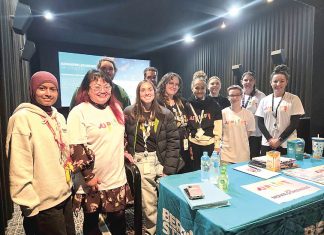Latrobe Valley is facing a crisis in its attempts to address child abuse and sexual assaults, with key agencies claiming a new Multi-Disciplinary Centre for the region is crucial.
The Gippsland Centre Against Sexual Assault, the Valley’s primary agency for addressing the impact of sexual assault on survivors, has eight counsellors each working with up to 130 clients at any one time and a waiting list of about 160 people.
This has necessitated a triage approach with some victims waiting up to 12 months for counselling and support.
Over the past three years GCASA has evaluated the effectiveness of several other pilot MDCs in the state and late last year formed a working group with other key agencies to collectively push for action on a ‘one-stop-shop’ proposal for the Valley.
Last week the State Government announced funding to establish three new MDC’s in Victoria as an initial response to recommendations in the Protecting Victoria’s Vulnerable Children Inquiry report.
MDCs have police, child protection officers and specialist counsellors located together to allow for closer working relationships and a seamless service delivery to clients, GCASA chief executive Fiona Boyle told The Express.
Centres already exist in Mildura and Frankston with another planned for Geelong.
Ms Boyle said Deakin University evaluations showed the approach was effective on all “key indicators”.
The PVVCI report, tabled in State Parliament last week, found Gippsland had the highest number of child protection reports per 1000 children of any region in Victoria.
The report prompted Berry Street regional director Trish McCluskey to identify the Valley as a region most in need of an MDC.
Ms Boyle agreed, saying “we would be asking questions too if Latrobe, in particular, was not identified as being a recipient of that”.
Even if Gippsland was announced as a new MDC location, Ms Boyle said she understood around $800,000 had been earmarked for each centre, forcing GCASA to explore options for fundraising at least another $1.2 million to meet the centre’s set-up costs.
Ms Boyle said she believed Gippsland was in a “good position” to attract an MDC which, if successful, was likely to have GCASA as its lead agency, in keeping with structures elsewhere in the state.
She said “really well-established working arrangements” between services including Department of Human Service’s child protection department, Victoria Police’s sexual offences and child abuse investigation team and GCASA already existed in Gippsland.
Co-location of those services, most likely in Morwell, would alleviate communication problems between them, Ms Boyle said.
Ideally a local MDC would expand on other models and include a community hub, she said.
“For sexual assault survivors, in particular, there are huge health issues, and pap smears and breast screens all impact on them,” she said.
“I would like to see community consulting suites (on-site) where we can bring in nurses and, hopefully, doctors to run information sessions to (help them) feel comfortable enough to have those screens.”
“I would like to make it really comprehensive so we can address all the barriers that survivors have to face,” Ms Boyle said.
“In the longer term we would like to see space dedicated to the collection of evidence because at the moment we have to rely on the hospital…a dedicated space would be much more discreet than people having to wait in accident and emergency wards at a hospital.”
Ms Boyle said the MDC would cost “$2 million plus” and the need for extra funds meant it would take at least two years to establish.
She said fundraising would add to the burden on GCASA workers already stretched beyond capacity managing client loads and waiting lists comprising adults, child protection referrals, police referrals and self-referrals.
Ms Boyle said waiting lists were triaged according to “clinical judgements”.
People with disabilities or other “additional barriers” may be “allocated immediately” but others face a wait.
She used the example of one elderly woman who had experienced childhood sexual assault and, although she had managed to function well in life, wanted to “talk about it and process things before she died”.
“In our triage system though, she was considered safe, stable and functioning so she didn’t meet our criteria and she had to wait,” she said.
“These are the sort of ethical dilemmas we face,” Ms Boyle said.
“There are always urgent child protection cases coming in…in the end (the woman) waited around six to seven months.”
While Ms Boyle welcomed “any changes that can be made to the system” she said retention and recruitment of child protection workers was essential.
“But if the external systems around them are flawed…for example, our waiting lists being so long, then there is still a dysfunction because they need to access help immediately but it doesn’t happen.”










